We are Machinery Safety Consulting Company in Japan
We provide support for safety standards for machinery products exported from Japan to North America.
Service

At EM Technology, we provide technical consulting services to support our customers in ensuring that their products meet the regulatory requirements of various countries.
We are a technical consulting company composed of experts with backgrounds as designers in the electrical equipment and machinery manufacturing industries, as well as specialists from third-party certification bodies.
Our team members are engineers with specialized skills and extensive experience.
We have a proven track record of providing consulting services for a wide range of products, from industrial machinery to electronic devices.
We offer customized support that aligns with our customers' specifications, situations, and requirements, covering critical technical aspects such as risk assessments, mechanical and electrical design considerations, pneumatic and hydraulic systems, component selection, evaluation and testing, as well as the preparation of product manuals and other essential documentation needed to meet applicable laws and standards.
Engineer

Our team is composed of highly qualified engineers, including TUV Appointed Machinery Safety Advisors, iNARTE EMC Engineers, iNARTE EMC Technicians, and iNARTE Product Safety Engineers.
By having multiple specialized engineers evaluate from their own perspectives and exchange their opinions, we can avoid self-centered judgments.
Rather than proceeding with work based solely on the judgment of one engineer, we incorporate the technical interpretations of multiple engineers and confirm the core reasons for their interpretations, which allows us to provide customers with the best technical service.
Additionally, at EM Technology, we have accumulated a wealth of technical know-how through the extensive collection of past case studies related to standard interpretations.
This collective "quality and quantity of thought" built by all our engineers, including past experiences, allows us to offer the best possible solutions.
We ensure that tasks are clearly defined, and we work together to develop concrete countermeasures, allowing us to proceed according to schedule.
Consulting Service

We provide consulting services to Japanese clients to meet their standard requirements.
Risk Assessment
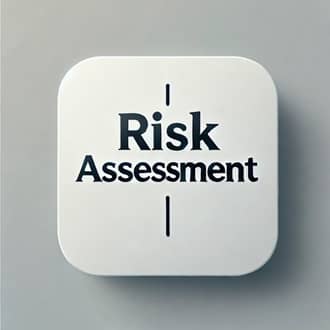
We conduct risk assessments in accordance with ANSI B11.0 and ISO 12100 standards.
We provide explanations and lectures on risk assessments, as well as support for creating risk assessment sheets.
In relation to risk assessment standards, we also review the construction of safety circuits in accordance with ANSI B11.26, ISO 13849-1, and other relevant standards.
Structural Evaluation
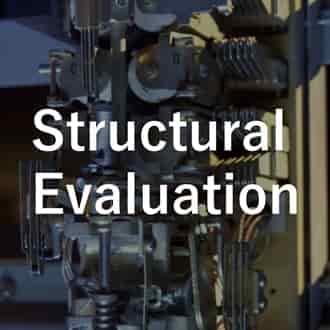
We support the safety design of your products to meet the required standards.
We provide consulting services on design and manufacturing to ensure compliance with standards for mechanical and electrical structures.
We provide explanations and advice on any points that do not meet the standard requirements.
All identified issues are documented in the report.
Countermeasures
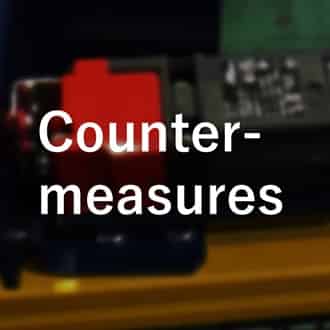
We work together with our customers to implement countermeasures that meet standard requirements and reduce risks.
We will thoroughly review how to proceed with product structure, component selection, and drawing modifications.
We also verify whether the relevant circuits in the safety-related sections meet the required Performance Level (PLr) and propose specific countermeasures if necessary.
Standards Evaluation/Testing
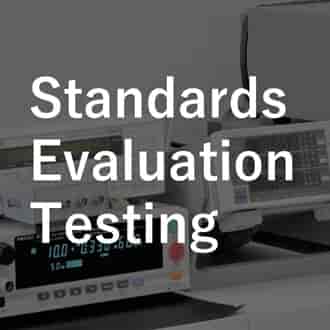
We conduct evaluations and testing in accordance with laws and standards, and writing test reports.
Major Machinery Safety Standards

We provide consulting services to meet customer and standard requirements.
OSHA 29 CFR Part 1910
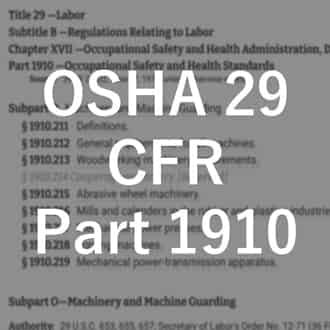
OSHA 29 CFR Part 1910 is a set of regulations established by the Occupational Safety and Health Administration (OSHA) in the United States, primarily outlining standards for safety and health in industry.
Subpart O contains requirements for guarding machinery, while Subpart S addresses electrical safety, both of which are crucial for ensuring the safety of machinery products.
NFPA70 (NEC)
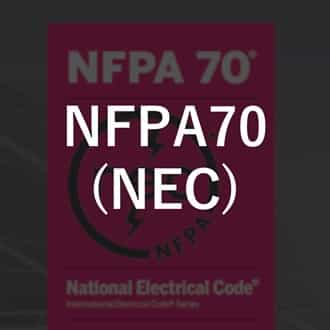
NFPA 70, also known as the National Electrical Code (NEC), is a comprehensive standard published by the National Fire Protection Association (NFPA) in the United States.
It sets the foundation for safe electrical design, installation, and inspection to protect people and property from electrical hazards.
The NEC covers various aspects of electrical systems, including wiring, grounding, overcurrent protection, and equipment installation.
NFPA79
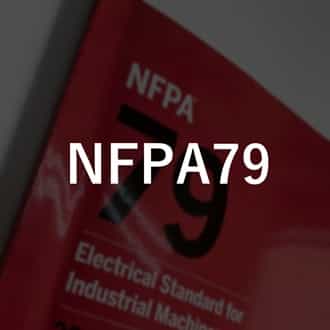
NFPA 79, titled the Electrical Standard for Industrial Machinery, is a key standard developed by the National Fire Protection Association (NFPA) in the United States.
NFPA 79 covers various aspects of machinery, such as control panels, wiring practices, grounding, and protection against electrical noise.
Compliance with NFPA 79 is essential for manufacturers and users of industrial machinery to maintain high safety standards.
UL508A
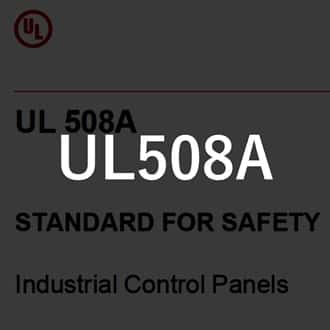
UL 508A is a safety standard developed by Underwriters Laboratories (UL) for the construction of industrial control panels.
UL 508A is important for manufacturers as it primarily covers equipment, wiring, etc. within control panels and reduces the risk of electrical hazards such as fire and electric shock.
ANSI B11 Series
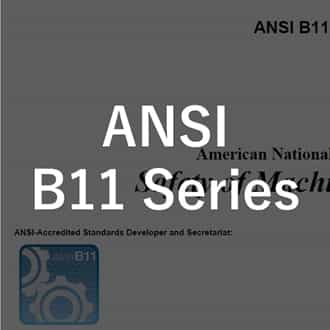
The ANSI B11 series is a set of safety standards developed by the American National Standards Institute (ANSI) specifically for machinery used in the manufacturing industry.
Each standard in the ANSI B11 series addresses a different aspect of machinery safety, including risk assessment, safety requirements for individual machines, and the safety circuits.
Other Standards
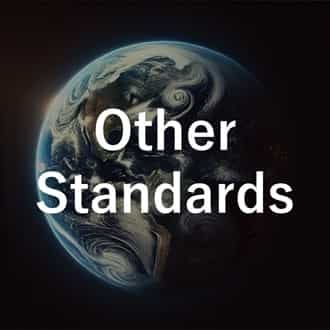
In addition, there are many other standards related to machinery safety, such as the machinery safety standard used in European CE marking, the risk assessment standard ISO12100, and the IEC60204-1 standard for electrical safety in industrial control panels.
